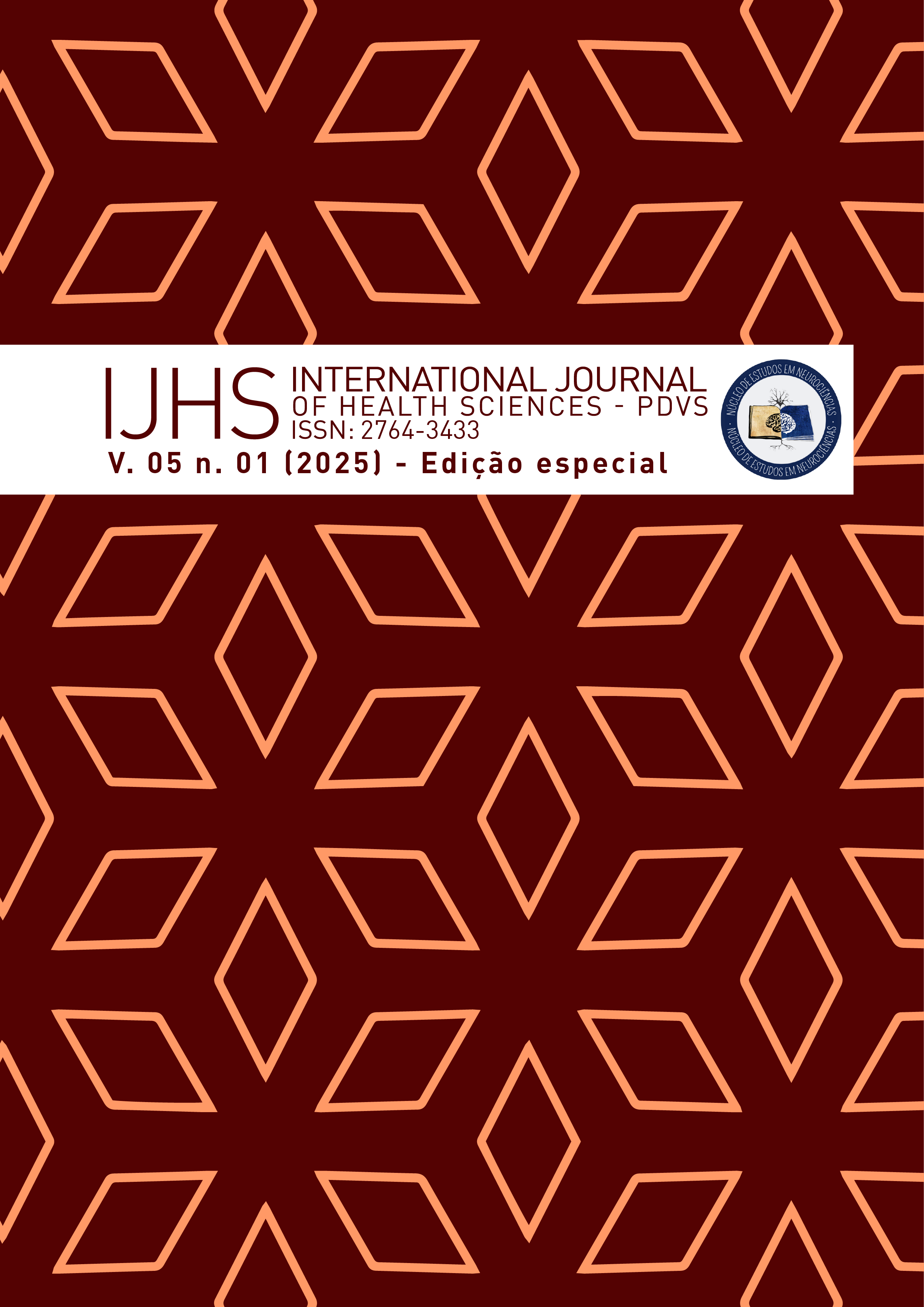GENETIC FACTORS INVOLVED IN SUICIDAL BEHAVIOR
DOI:
https://doi.org/10.31692/2764-3433.v5i1.305Schlagwörter:
Mental disorder, Hypothalamic-Pituitary-Adrenal, AxisAbstract
Suicidal behavior (SB) is a global public health problem, with suicide being one of the main challenges commonly associated with mental disorders and neurobiological and genetic alterations. SB has been described as a complex gene-environment interaction involving emotional regulation, cognition, and stress responses, with the hypothalamic-pituitary-adrenal axis being fundamental in stress regulation through the release of hormones such as cortisol. The objective was to list the main associations between genotype and SB. For this, open-access articles in English published between 2021 and 2024 were searched on PubMed using the descriptors "Suicide", "Depression", "mental disorder" and "genetic". A total of 405 articles were identified, and after exclusion criteria, 13 articles were selected. Factors involved in epigenetic modulation, such as DNA methylation and variants in single nucleotide polymorphisms, amplify susceptibility to SB, especially in individuals previously exposed to trauma. These alterations impact neuroplasticity and regulate levels of neurotransmitters essential for emotional balance. Despite advances indicating genetic and epigenetic predisposition as strong influences on HPA disturbances that trigger neurochemical and inflammatory responses, which in turn are associated with SB, there are still no definitive genetic biomarkers for SB prediction. Therefore, genes like NR3C1, FKBP5, CRHR1, and SKA2 emerge as important targets for understanding the mechanisms underlying SB and may impact the development of prevention strategies and personalized therapies.

Downloads
Veröffentlicht
Ausgabe
Rubrik
Lizenz
Copyright (c) 2025 International Journal of Health Sciences

Dieses Werk steht unter der Lizenz Creative Commons Namensnennung 4.0 International.





